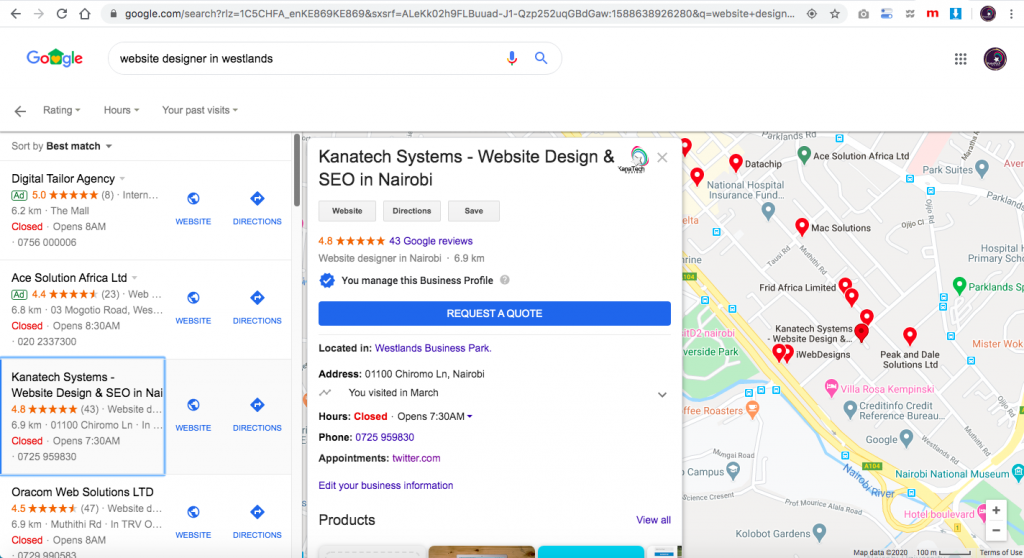In this short guide, we’ll teach you what page titles and meta descriptions are, why they’re so important for Search Engine Optimisation (SEO) and how you can optimise them like the pros.
To write the best page titles and meta descriptions, you must make them unique, make sure they’re not too short or long, use accurate keyword phrases for each page, not stuff keywords in, and write for people, not robots.
These rules are simple and easy to follow, and the result of well-optimised page titles and meta descriptions is more traffic to your website.
There are two ways your domain can impact your SEO and search rankings:
(a) Branding domains
Your domain name should be based on your brand. This is how users will find, remember, share and identify your business online.— KanaTech Systems (@KanaTech_Sys) August 7, 2020
In addition to these rules, you can also use a few basic sales and advertising techniques to help you craft the best page title or perfect meta description possible, including Unique Selling Point (USP) positioning and the use of psychological trigger words.
What Are Page Titles and Meta Descriptions?
Page titles and meta descriptions are two separate pieces of HTML code that should be found on every page of the internet. Like a book, they tell you the title of the page you’re on and a summary of that page. These are then used by search engines, like Google, to create an easy-to-read link to a website from their index.
It takes a difficult-to-read URL like this:
https://www.hulu.com/series/chernobyl-849bed9a-2da8-484b-8cdf-d7000090fc5d
and turns it into an easy-to-read clickable link like:
Watch Chernobyl Streaming Online | Hulu (Free Trial)
Web browsers also use page titles in browser bars to make them easily identifiable from one tab to the next — very useful when you have multiple tabs open at the same time — and as the names for the bookmarks, you may save.
Almost all search engines display page titles and descriptions — you can refer to both as metadata — in the same way, almost going as far as having near-identical colours for page titles links and meta description text.
What Is a Page Title?
Page titles are the singular line of text you see in the search engine results, when bookmarking a page and on a tab in your browser bar, and they can be likened to book titles. They are normally a short description of the linked page.
The line of code for page titles is a very simple piece of HTML code that looks like this.
<title>This is a Title</title>
If you navigate to the source code of this page (using the right shortcut for your browser), you will find that the title tag for this page is:
<title>How to Write Page Titles and Descriptions for SEO</title>
When appearing on Google, it looks like this:
There are two ways your domain can impact your SEO and search rankings:
(a) Branding domains
Your domain name should be based on your brand. This is how users will find, remember, share and identify your business online.— KanaTech Systems (@KanaTech_Sys) August 7, 2020
By optimising page titles for SEO, we can increase the possibility that they will be clicked, resulting in more website traffic.
What Is a Meta Description?
Meta descriptions are short descriptions of a page, similar to the blurb on the back of a book. They summarise the content you will find when you click on the link of a page on a search engine’s results page.
Like page titles, these are also written using short HTML code, which you’ll find in the source code of most websites (well, on all optimised websites, anyway).
The meta description tag looks like this:
<meta name=”description” content=”This is a meta description of a page”>
If you were to examine the meta description tag in the source code of this page, you’d see that it looks like this:
<meta name=”description” content=”Learn how to write metadata, specifically meta titles and meta descriptions, to increase your click-through rate from Google’s search results pages”>
Poorly written or missing meta descriptions can result in people not noticing a page in Google’s search results, which is bad news for business owners who want their pages visited and not their competitors’.













